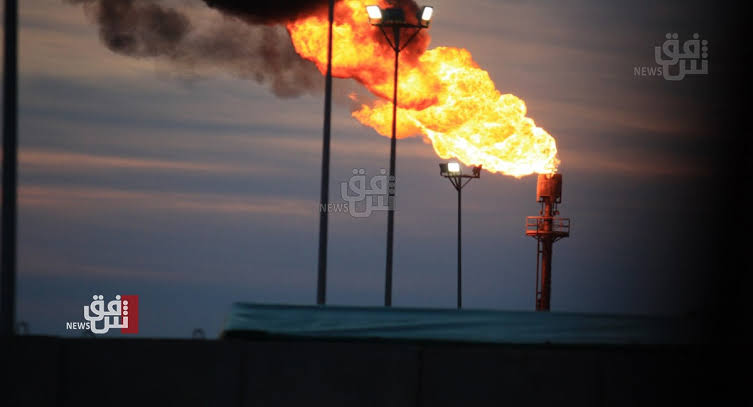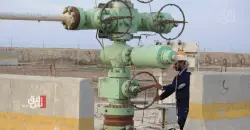Iraq unveils strategic plan to end gas import dependency by 2027

Shafaq News/ On Monday, the Parliamentary Oil and Gas Committee member, Alaa Al-Haidari, unveiled a strategic timeline to resolve Iraq's gas import dependency permanently.
Al-Haidari told Shafaq News Agency that "the sixth licensing round, recently announced by the Ministry of Oil, encompasses exploration blocks for ramping up natural gas extraction." This initiative is "pivotal in realizing self-sufficiency in gas production within the next few years."
Currently, Iraq spends approximately $5 billion annually on gas imports to fuel its power stations, straining the national budget.
Al-Haidari explained that the latest licensing rounds strategically cover gas fields from southern to northern Iraq, "positioning the nation to achieve self-reliance in locally sourced gas by 2027, thereby ending gas import reliance."
On Saturday, Iraqi Prime Minister Mohammed Shia Al-Sudani launched the fifth supplementary round and full sixth round of oil and gas exploration licenses encompassing 29 projects spread across 12 governorates.
The Iraqi government anticipates substantial outcomes from these projects, aiming to achieve a daily production capacity of over 3,459 million standard cubic feet of gas and more than one million barrels of oil.
Deputy Prime Minister for Energy Affairs and Oil Minister Hayan Abdulghani expressed optimism regarding Iraq's oil reserves, "aiming to surpass 160 billion barrels, a testament to the country's vast energy potential."
According to OPEC's annual report, Iraq has the fourth-largest proven crude oil reserves, trailing only Venezuela, Saudi Arabia, and Iran globally. Additionally, Iraq possesses major natural gas reserves of 132 trillion cubic feet.
During the launch ceremony, Al-Sudani emphasized Iraq's role as a "challenging player in the energy and oil wealth equation in the region and the world," highlighting the Ministry of Oil's commitment to halt associated gas flaring within five years.
The prime minister outlined a comprehensive approach that includes converting oil production into value-added industries like petrochemicals and refineries, aiming to achieve a 40% conversion rate within the next decade. This shift underscores Iraq's commitment to economic diversification and sustainable development.
A day after launching the license round, more than 20 companies qualified, including European, Chinese, Arab, and Iraqi groups. However, major American oil companies were absent, even after Al-Sudani met with representatives of American oil companies during his official visit to the United States last month.
The Iraqi Ministry of Oil's spokesperson, Asim Jihad, stated that Chinese companies secured contracts for exploration in five Iraqi oil and gas fields, aiming primarily to increase gas production for domestic use.
A Kurdish-Iraqi company also won two of 29 projects spread across central, southern, and western Iraq. This round also included, for the first time, an offshore exploration zone in the Gulf waters.
Zhenhua, a Chinese company, secured the investment rights for the Abu Khema field near the Iraqi-Syrian border in Muthanna governorate. This came after competing with the Geo Jade Chinese company.
The Abu Khema field, spanning 294 square kilometers in al-Muthanna, holds significant oil and associated gas reserves.
Jihad also mentioned the success of Antonoil, another Chinese company, in securing the investment rights for the Abu Al-Zafria field (368 square kilometers) in Wasit governorate, which contains two drilled wells with substantial oil reserves. This company was the sole bidder for this project.
Additionally, Jihad highlighted the winning of Chinese Sinopec in acquiring the rights for the Sumar area in Muthanna.
The Sumar area, extending over approximately 1,773 square kilometers, encompasses major reservoirs like the Omar, Zubair, Yamama, and Najma within the governorate.
The expected gas production from this licensing round equals 200% of Iraq's current gas imports from Iran, which amounts to 1,700 million cubic meters per day.





